Five doctors reflect on an unforgettable year and look ahead to 2021 and the possible future course of the pandemic. David Lynch reports
Doctors contacted by this newspaper have said the current Covid-19 ‘wave’ is significantly different to their experiences of the previous upsurge in March and April. They said the pandemic has exposed underlying challenges facing the Irish health system, but that progress in vaccine development is a source of hope for next year.
The Medical Independent (MI) contacted doctors working in the Irish healthcare system asking them to reflect on the last nine months of medicine during a pandemic and their hopes for the New Year.
The respondents include both early career and experienced doctors, hospital consultants, a psychiatrist, GP and an NCHD. Peering into 2021, all the doctors who responded mentioned Covid-19 vaccination progress as a cause for hope.
On 2020 itself, doctors contacted by MI mentioned how the pandemic has exacerbated some long standing health challenges. Hospital capacity issues and a lack of consultants and frontline healthcare teams “have put the country in a perilous situation coping with the pandemic”, according to Dr Gabrielle Colleran, Consultant Paediatric Radiologist, Children’s Health Ireland at Temple Street, Dublin and Vice-President of the IHCA.
The pandemic has also had specific impacts on working practices, particularly as a result of physical distancing measures. For instance, experienced north Dublin GP Dr Ray Walley and trainee GP in Midlands Regional Hospital, Mullingar, Dr Eoin Murphy both highlight the intensification in the use of telemedicine.
Dr Maeve Eogan, Consultant Obstetrician and Gynaecologist at the Rotunda Hospital, Dublin, reflects on the restrictions to face-to-face engagement between colleagues. As a result, she misses the days of in-person professional development conferences.
In terms of the lessons that can be learned when this pandemic is finally over, doctors were agreed there should be no return to the pre-pandemic healthcare system, while some pointed to positive changes that have taken place in work practices during the crisis.
Taking a wider, and optimistic view, Prof Brendan Kelly, Consultant Psychiatrist at Tallaght University Hospital, maintained that “the response to the pandemic should teach us that human beings are more resourceful and altruistic than we might have imagined prior to this emergency”.
One aspect that has been proved beyond doubt is that predictions for next year would be foolish in the extreme. However, while still working in the midst of the pandemic, the doctors contacted by this newspaper seemed cautiously optimistic about 2021 as they reach the final weeks of a year that no-one will ever forget.
“Compared to the last wave, we are also working significantly longer hours, close to the levels which we would have experienced pre-pandemic…”
Dr Eoin Murphy, GP trainee in Midlands Regional Hospital, Mullingar, and member of the IMO NCHD committee.
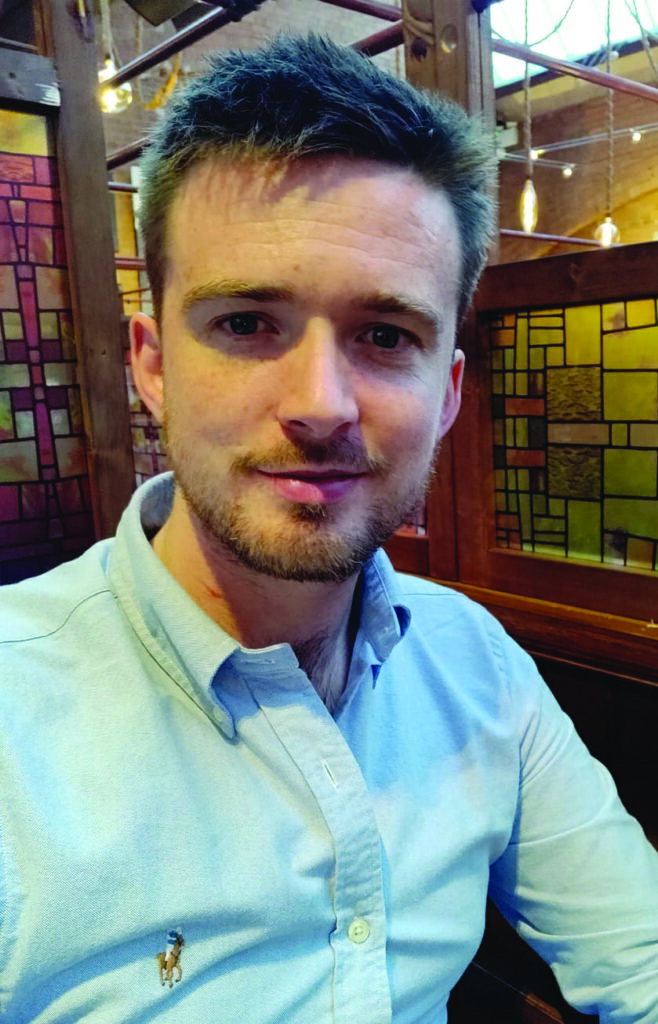
How does this recent ‘wave’ compare to March/April?
The biggest challenge this time around is that we’re not just contending with Covid-19. We are also expected to keep up a higher level of other clinical activity, including elective procedures and outpatient activity.
In terms of the lessons that can be learned when this pandemic is finally over, doctors were agreed there should be no return to the pre-pandemic healthcare system…
This is to address some of the serious backlogs that we incurred during the last wave, which added on top of our already overburdened waiting lists. Compared to the last wave, we are also working significantly longer hours, close to the levels which we would have experienced pre-pandemic, as we’ve seen in our most recent EWTD [European Working Time Directive Survey] survey.
We are experiencing significant fatigue as a result of that and feeling the effects of Covid-19 on our lives… on top of it all.
When you look back over the pandemic, is there one professional or personal experience that stands out?
The switch to telemedicine, and the effect this has on doctors and patients alike, has been an experience that has stood out for me. Patients often struggle with the switch, especially when they are doing an outpatient appointment for the first time through the medium, and they sometimes feel they aren’t getting the level or quality-of-care they would have otherwise.
Doctors are struggling with this too. We are used to caring for patients directly and doing so over the telephone is a real challenge.
What are your hopes as we enter 2021?
I have hopes for my colleagues to achieve success through the IMO this year: Public health specialists finally being recognised appropriately as consultants… and leading a national vaccination effort; safe staffing levels and improved working hours for NCHDs; and more supports and respect shown to non-scheme NCHDs, especially international doctors who want to find a way to build their career in Ireland.
I’m hopeful that we’ll be able to turn a corner this year and make frontline healthcare workers a priority.
Is there one major lesson for the health system when this pandemic is over?
I’m reminded of a quote from Rudolf Virchow, a German physician/pathologist from the mid-19th Century: “Medicine is a social science and politics is nothing else but medicine on a large scale.”
We’ve seen the importance of public health on our society, and we’re seeing how individual health outcomes can affect us as a whole. All health is public health, and we need to remember that when we make big decisions about how we create a better health service for all of us.
“I’m also really looking forward to some professional development conferences – I look back fondly on pre-Covid academic meetings.”
Dr Maeve Eogan, National Clinical Director of the Sexual Assault Treatment Units (SATUs) and Consultant Obstetrician and Gynaecologist at the Rotunda Hospital, Dublin.
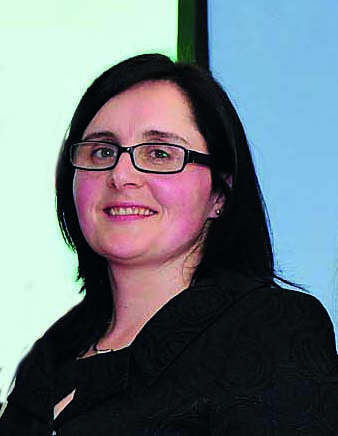
How does this recent ‘wave’ compare to March/April?
Although both waves of Covid brought many changes to maternity services from an operational perspective – eg, visiting restrictions, pre-admission Covid swabs for planned procedures – we were lucky that the services were not overwhelmed by significant staff or patient Covid-related illness.
This was facilitated by huge patient engagement.
Pregnant women are taking great care with hand washing, distancing and limiting interactions, and they are very understanding about the importance of reducing footfall in the hospitals, and the impact that has on partner attendance for routine visits.
The differences in the second ‘wave’ included the welcome return of partners to the 20 week anatomy scan as well as daily visiting periods with a longer period at weekends, compared with the early weeks of the pandemic when partners were only there for labour and birth.
From the gynaecology perspective we have had only limited cancellations in the second ‘wave’, while both clinics and gynaecology operating were very restricted back in March/April time.
In terms of the SATUs, it is important to note that sexual violence has remained prevalent throughout the pandemic, attendances have reduced by about 25 per cent but neither lockdown eliminated sexual crime. The only positive to take from this is that we can finally erase that societal myth that all sexual violence relates to pubs, clubs and socialising – but it also emphasises that initiatives to reduce sexual violence need to be extended all across society.
When you look back over the pandemic, is there one professional or personal experience that stands out?
I think we all need to be proud of the massive adaptations and adjustments everyone has made since February.
About 6,500 babies have been born at the Rotunda since March, and we have heard so much positive feedback from women and families who attended on the care we provided – not just medical and midwifery but also lovely comments on our allied healthcare personnel, outstanding catering team and the never busier household staff.
With the emphasis in the media on the ‘negatives’ of visiting restrictions, it has been so lovely that busy parents have taken the time to provide positive feedback on their lived experiences.
What are your hopes as we enter 2021?
Like everyone, I’m eagerly anticipating a safe, effective and accessible vaccination programme. As well as bringing many personal benefits, the societal impact will bring professional benefits in terms of allowing us to focus on non-Covid related or affected priorities.
I’m also really looking forward to some professional development conferences – I look back fondly on pre-Covid academic meetings. The online platforms have been great, and they make knowledge dissemination very accessible, but a morning of in-person lectures, meeting colleagues, and networking at coffee breaks and picking up some free pens is definitely something I’d hope to do before the end of 2021!
Is there one major lesson for the health system when this pandemic is over?
While our health service is not perfect, I don’t think we ever realised how agile it could be. We had got used to prolonged implementation processes for new policies and initiatives – but Covid has shown us that we can change and indeed we ‘do change’ well.
We need to bring this learning with us to the post-pandemic era and remain motivated to always do our best.
“We cannot return to the system we had in place before the pandemic –we must do better.”
Dr Gabrielle Colleran, Consultant Paediatric Radiologist, Children’s Health Ireland at Temple Street, Dublin, and Vice-President of the IHCA
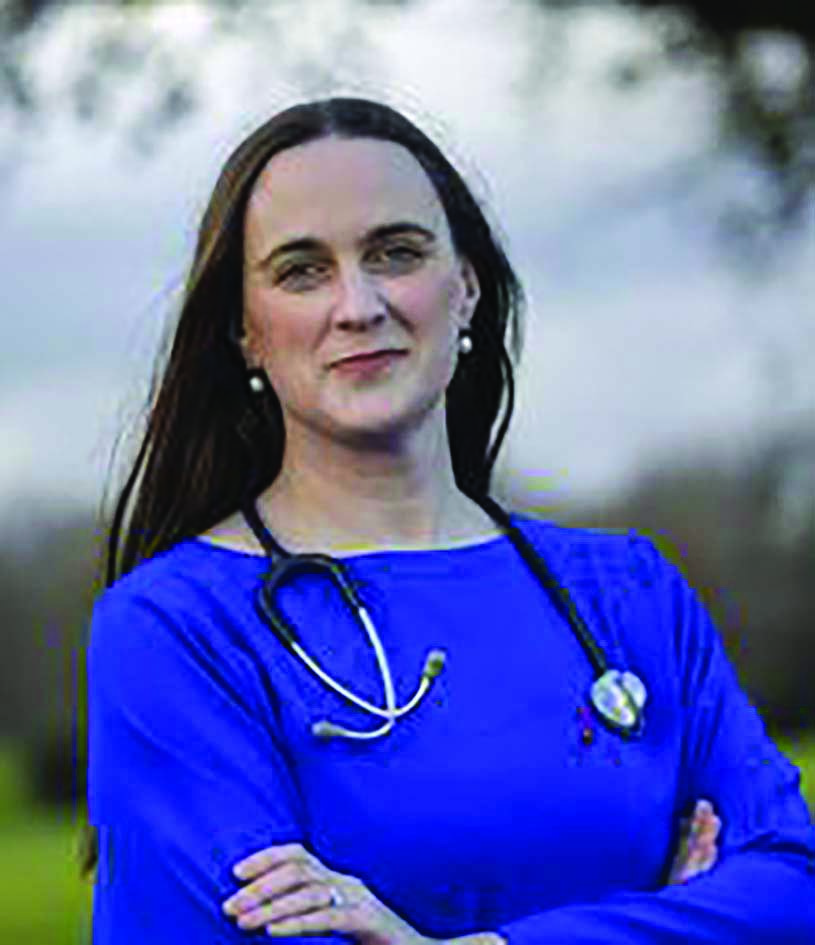
How does this recent ‘wave’ compare to March/April?
The number of patients with Covid-19 who require hospitalisation and intensive care is significantly below that of the first wave.
This is largely because the more vulnerable people in our society appear to have taken precautions and have therefore not succumbed to infection to the same extent. PPE [personal protective equipment] is more widely available and we know much more about the disease than we did at the start of the pandemic.
This has contributed to better outcomes for patients. However, we cannot get complacent and assume that sufficient capacity and staffing exists to manage an infection surge on the same scale that we experienced from March to May.
PPE is more widely available and we know much more about the disease than we did at the start of the pandemic
Expansion of ICU and acute bed capacity, ventilators, and other equipment is slow and significantly short of recommended levels, especially when coupled with the winter flu and other non-Covid-19 patient demands on acute hospitals.
When you look back over the pandemic, is there one professional or personal experience that stands out?
Substantial deficits in hospital beds, hospital consultants, and frontline healthcare teams have put the country in a perilous situation coping with the Covid-19 pandemic.
Unacceptable hospital waiting lists and the escalating demand for hospital treatment have delayed care for hundreds of patients, leaving frontline healthcare teams understaffed and exhausted. Patients deserve a fully equipped and staffed healthcare system that can provide timely care.
The essential nature of a health system with capacity to meet need, and flex capacity to upscale to cope with surges of activity, be they the seasonal flu or Covid-19; has been the stand out lesson from Covid-19 for me.
That, along with the excellence and commitment of frontline staff who adapted services so effectively to cope as best we could to meet the demands of the pandemic.
What are your hopes as we enter 2021?
I hope that Government and health service management effectively channel the 2021 Budget record-breaking funding for healthcare. We must prioritise the delivery of sustainable public hospital improvements through increased numbers of consultants, frontline healthcare professionals, and acute beds.
This will ensure more timely care for patients. One practical solution would be filling the 728 vacant hospital consultant posts with permanent appointees.
Doing so requires ending the 2012 Government’s decision to change the way new consultants are contracted; this would create a long-term sustainable consultant pipeline and reduce the record number of people on waiting lists.
Is there one major lesson for the health system when this pandemic is over?
We cannot return to the system we had in place before the pandemic – we must do better. The Government needs to match public hospital capacity with the population’s need for hospital care.
This is immediately required to ensure the provision not only of timely care to patients, but also to prevent the exposure of our population and economy to the risks of a future pandemic.
“In the second wave staff and patients knew the routine. Things were more calm. The danger is more of complacency, comfort with our predicament than in the first wave.”
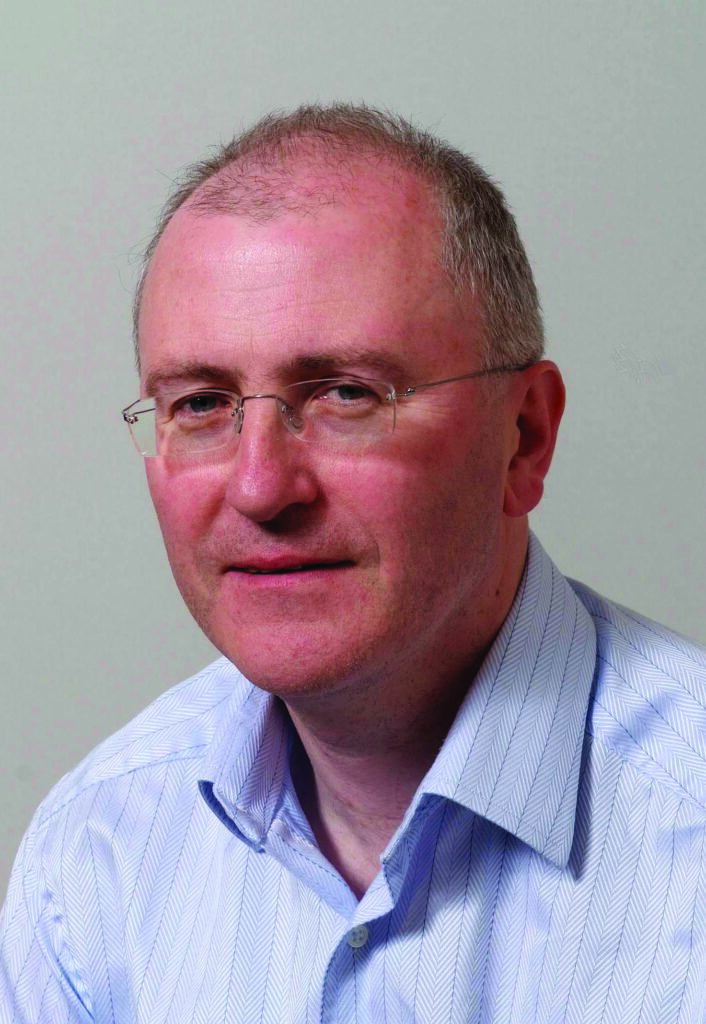
Dr Ray Walley, GP in north Dublin and former IMO President.
How does this recent ‘wave’ compare to March/April?
I live and work in Glasnevin, Dublin. On Saturday 29 February a school in Glasnevin was reported to have the first case of Covid-19. Having been on the IMO/ICGP/HSE Covid-19 liaison committee from January/February preparing for the pandemic I was lucky that I was in the vanguard of planning and knowledge.
At the time the liaison committee were only developing with HSE/Department of Health the Covid-19 management algorithms and they were not yet published. These algorithms gave GPs the support to decide on the basis of a selection of symptoms on what needed to be referred for Covid-19 testing or not.
I was able to circulate these on Monday 3 March to local GP practices at the ground zero of the first wave. Over the following days these algorithms were fine-tuned, being regularly updated.
The first wave was hectic. Practices had to clear their waiting and consultation rooms of surplus furniture and brochures. Staff had to be briefed in regard to the health and safety precautions. Triage protocols for appointments were put in place.
Buzzer doors were put where open doors were previously. Few face-to-face consultations were done with more telephone and video consultations prevailing.
It was hectic and exhausting for all healthcare staff and at times scary for both patients and healthcare staff. In the second wave staff and patients knew the routine. Things were more calm. The danger is more of complacency, comfort with our predicament than in the first wave.
Staff have been brilliant and have wholeheartedly put their shoulder to the wheel with no slackening. Thankfully numbers have been less. From a near 100 per cent tele/video consultation routine, except for the periodic respiratory or acute face-to-face assessment, in the first wave, my practice has returned to approximately 70 per cent face-to-face consultation with the rest filled with tele/video consults. Days continue to be hectic with non-urgent paperwork being greatly delayed. Everything is prioritised and triaged.
When you look back over the pandemic, is there one professional or personal experience that stands out?
My stand-out personal experience relates to one of my elderly patients who attended her two brothers’ funerals two weeks apart. She did everything right at the funerals except at the last one she realised that friends offering condolences at the graveside outdoors stayed too long talking. She got Covid-19 as did many of her family.
She ended up on a ventilator and thankfully survived… as did her family. I asked her what lesson she learned from that. She advised that she should have not gone to either of her brothers’ funerals. In consideration of how important we all know it is to celebrate the life and deaths of our family, her words summed up what Covid-19 has done to society.
What are your hopes as we enter 2021?
My professional hopes are that we learn to live to some degree with Covid-19, that we continue to progress positive developments on diagnostics, treatments, and vaccines. In the interim we need to ensure the supports are in place for our most vulnerable especially those with mental health issues. Mental health funding needs to be augmented and prioritised now.
Is there one major lesson for the health system when this pandemic is over?
One major lesson I have learned is the importance of face-to-face consultations. From the start of calling a patient from the waiting room and greeting them, to welcoming them into the consultation room.
This is greatly lost in telephone and video consults. The tele/video consults disallow opportunistic assessments of mobility and mental health, disallow the ability to build a bond with patients young and old.
We need to recognise this and recognise that a tele/video consult is yet another tool like a stethoscope or a pulse oximeter. We need to return to face-to-face consultations as much as we safely can.
I have especially learned how important face-to-face consultation is for mental health assessment, especially for our youth. They have been hit hard by the pandemic, losing a lot of their educational and life milestones. They have been Trojans.
“In broad terms, we should remember that our way of life is more vulnerable than we imagined.”
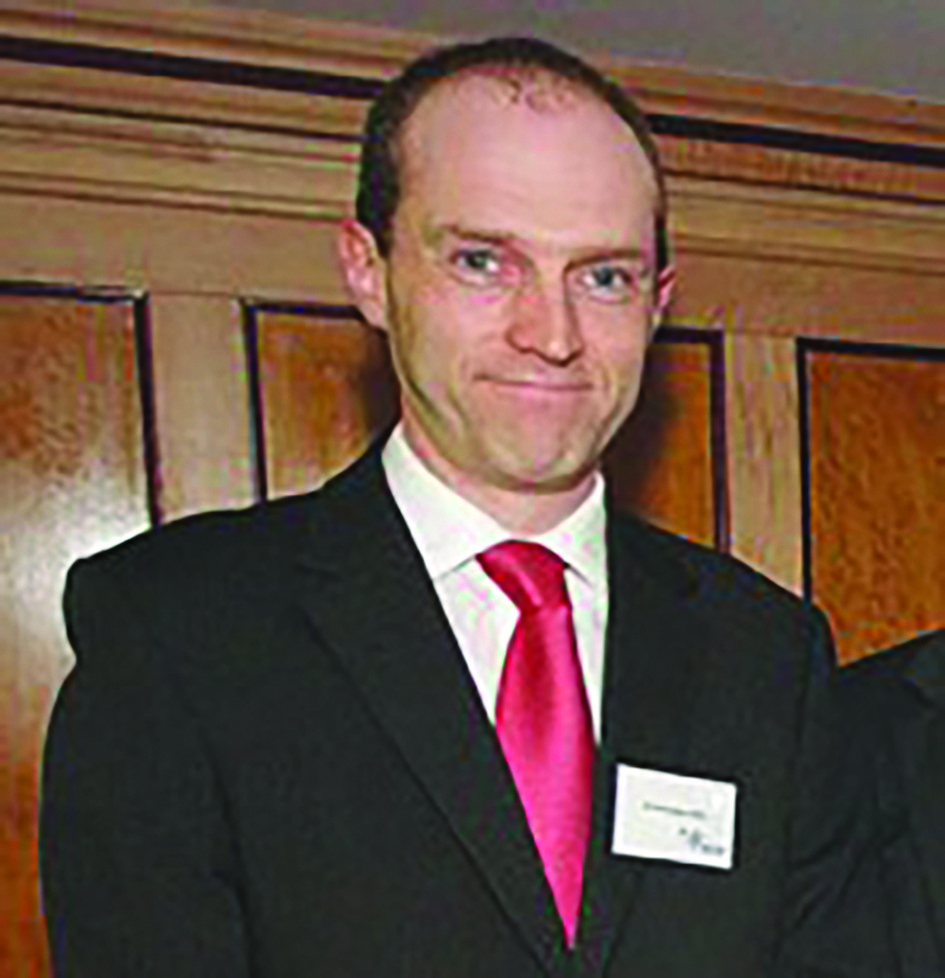
Prof Brendan Kelly, Professor of Psychiatry at Trinity College Dublin and
Consultant Psychiatrist at Tallaght University Hospital, Dublin.
How does this recent ‘wave’ compare to March/April?
The experience of the current resurgence of Covid-19 is different to the situation earlier in 2020. We are now more familiar with the restrictions, the elements of public health guidance and the key concepts in government communications.
In healthcare, we are also more familiar with both the illness associated with the virus and its impact on our working lives. This is helpful in one sense, but also challenging owing to the duration of the pandemic.
When you look back over the pandemic, is there one professional or personal experience that stands out?
I’ve been enormously impressed by the dedication of healthcare staff from the outset. Even after so many months, staff are pulling together in ways that are truly inspirational.
What are your hopes as we enter 2021?
My hopes for 2021 are that the pandemic will come under control through a combination of public health measures, vaccination, and advances in treatment. Public health measures will remain absolutely central, even if there is successful roll-out of vaccinations.
Is there one major lesson for the health system when this pandemic is over?
In broad terms, we should remember that our way of life is more vulnerable than we imagined. In addition, however, the response to the pandemic should teach us that human beings are more resourceful and altruistic than we might have imagined prior to this emergency.













Leave a Reply
You must be logged in to post a comment.